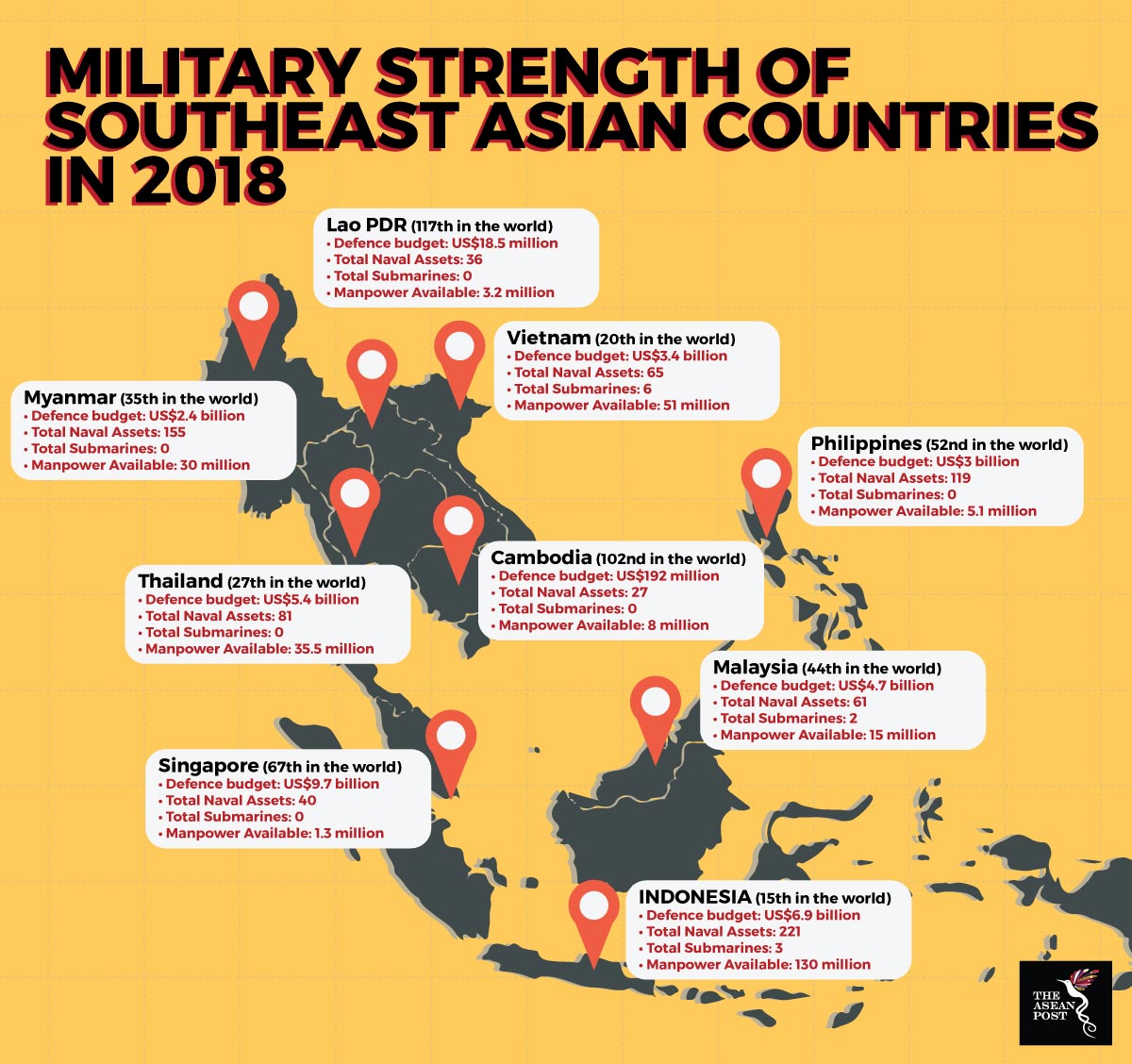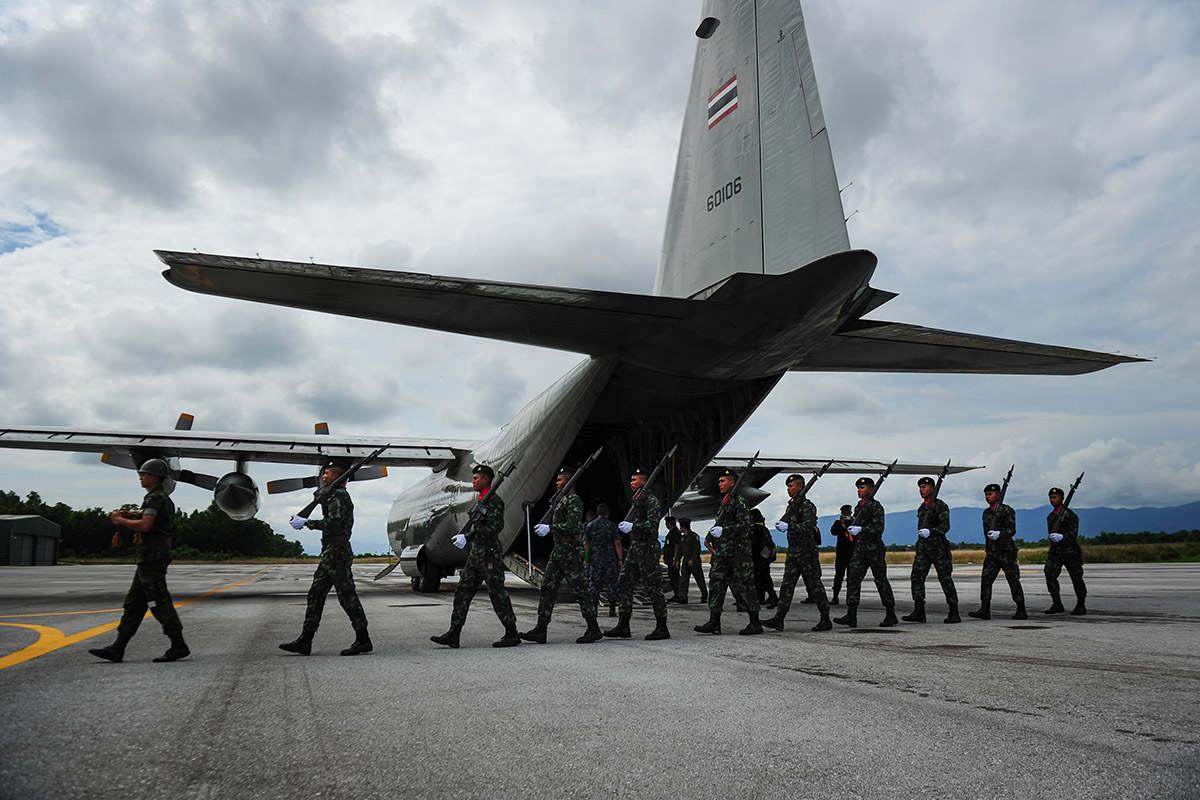While many countries across the globe are cutting down on their military expenditure, ASEAN member states are heading in the opposite direction. Over the last 15 years, the total defence spending of Southeast Asian countries has doubled in absolute terms, with Thailand and Indonesia becoming witness to military expenditure growth rates of 10% on a year-by-year basis. Connected to the rise in defence spending is an increase in a procurement of armaments. Among the new machinery purchased are frigates, fighter jets, helicopters, submarines, and tanks.
Based on a report by Dan Steinbock, a visiting fellow at the Shanghai Institute for International Studies (China), the biggest military spenders in the region (over the past three years) are Singapore (US$10 billion) and Indonesia (US$8.2 billion). Thailand and Vietnam are next with a spend of approximately US$ 5-6 billion each. Next on the list are Malaysia and the Philippines, with their respective governments spending about US$4 billion each on defence.
It is not surprising that ASEAN’s wealthiest nation is also its top defence spender. Since the early 1970s, Singapore has allocated an average of 6% of its GDP to defence, which has enabled it to acquire, for a state of its size, very capable and modern ground, air, and naval forces.
According to Felix Heiduk, Senior Associate at the German Institute for International and Security Affairs, Vietnam’s arms imports increased by almost 700 percent over the past decade, shifting Hanoi from the world’s 43rd largest arms buyer to one of the top 10.

Source: GlobalFirepower.com – World Military Strengths Detailed, 2018
Inter and intra state security
Many militaries within the region are undergoing a strategic reorientation away from an almost exclusive focus on counter-insurgency and domestic stability to external defence, power projection, and conventional warfare.
A recent increase in security threats across the region has necessitated a hike in defence spending. Examples of such events include the Lahad Datu standoff in 2013. The incursion came to be after 235 militants (some of whom were armed), arrived in the Lahad Datu district in Sabah, Malaysia by boats. These militants called themselves the ‘Royal Security Forces of the Sultanate of Sulu and North Borneo’ and was supposedly sent by Jamalul Kiram III, one of the claimants to the throne of the Sultanate of Sulu. The Malaysian government had to deal with the issue through the use of force, a reaction that rarely happens within and beyond its borders.
In terms of intra-state security, a heightened sense of apprehension towards external forces is understandable. China’s assertive policy in trying to claim the South China Sea has been a cause of much concern for ASEAN. Through the use of its own archaic maps, Beijing has been persistent in its stance that the area is under their control and jurisdiction.
The constant patrolling of these waters has raised alarm bells among Southeast Asian countries. However, it is quite ironic that many governments in the region have made armament purchases from China. Beijing is Myanmar’s biggest supplier of weapons, providing most of its fighter aircraft, armoured vehicles, guns, and naval ships. Even though Myanmar does not have a stake in the South China Sea, its decision to purchase armaments from China could potentially be an inflammatory choice in the eyes of its neighbours who are claimants to the aforesaid location. Similarly, the Royal Thai Army had purchased 28 VT4 main battle tanks from China, amounting to US$147 million. Thailand had also put in orders for a trio of Type 039A Yuan-class diesel-electric attack submarines in late 2016 and VN1 infantry fighting vehicles early last year.
Arguably, new trends in the purchasing of armaments have heightened mutual distrust about the intentions and power ambitions of neighbouring states. This lack of trust is further intensified by a deficiency of proper control and transparency mechanisms. As an association that prides itself in its relative stability and harmony, ASEAN as a whole has to come up with measures that could mitigate such discord. Such a step should be implemented without delay so as to create a more peaceful bloc that emanates confidence among its member states.
